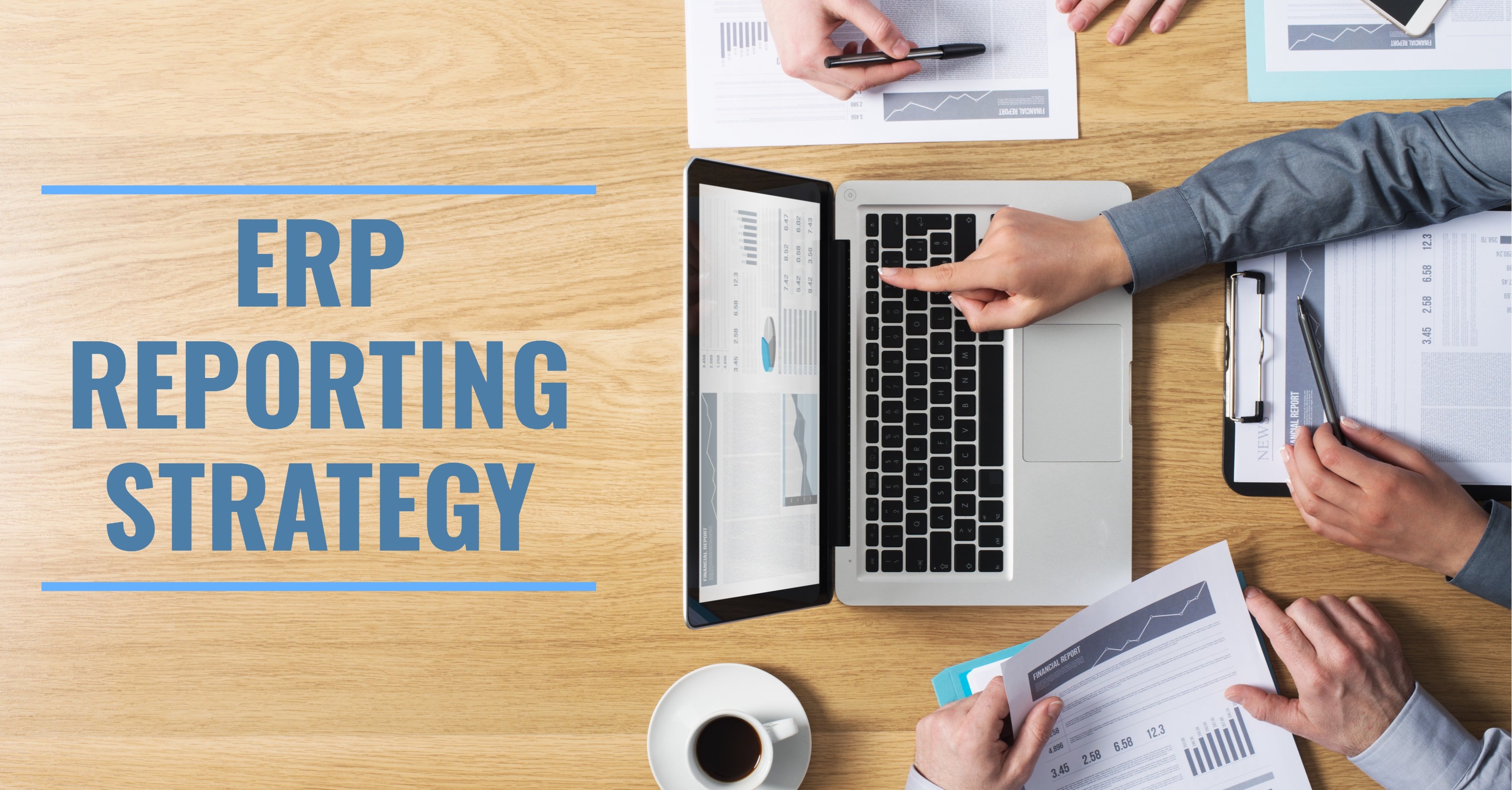
How to Get the Most From ERP Reports
ERP software has made huge leaps and bounds in recent years and now allows users to store crucial company and customer data in a greater magnitude than ever. However, improvements in data gathering does not necessarily mean all good things for the rest of the enterprise software world. After all, that additional information has to be channeled into something valuable: reports, decisions and actions. Some ERP vendors and users simply haven’t added the additional capacity for reporting and data scrutiny as they have for storage.
Are businesses really taking advantage of their ERP system’s ability for data collection if they don’t have the tools to efficiently analyze it to drive pivotal business decisions? The answer is no—they are simply wasting money and server space. An effective ERP reporting strategy is crucial to truly glean the vast amounts of value available in modern enterprise software.
The best kind of business and software reports are succinct, accurate and actionable. Businesses need a refined ERP reporting strategy to ensure that the entire organization is crafting the same caliber of reports and driving the same results across departments. That’s why your ERP reporting strategy must work across teams, not in silos. Don’t leave such crucial arrangements up to multiple decision makers. Keep on reading for the essential buildings blocks of a solid reporting strategy that can take your ERP ROI from satisfactory to mind-blowing.
Find Reporting Failures, and Fix Them Early
Reporting failures—they often come hand in hand with the implementation of any new software within an organization. All the hype in the lead-up to go-live promises instant results and reports that can magically create revenue and shave time off of every employee’s daily tasks. But come go-live, the project team finds that employees have been distracted by the hype, and no one has been properly trained in reporting, or in the best way to extract data from the new system. This results in either a pile-up of report requests for IT or error-ridden information that would be unsafe to base any business decision on.
Part of a success-winning ERP reporting strategy is an inbuilt training strategy and a focus on reporting from day one of the selection process. Accurate reporting is one of the most critical functions of your enterprise software, so assign dedicated team members during the training and implementation process to focus on reports. When they know reporting functionalities in that new ERP inside and out, they will be able to catch errors and faulty data early on. This means little to no backups of errors and a larger safety net for bad data that can affect your bottom line.
Look Beyond the Hype
Finding the right software and building a perfect ERP reporting strategy lies in looking beyond the sales pitch. ERP vendors will enthusiastically tout their all-in-one products that can handle a huge range of functions, from big data analysis to quality management. Potential buyers should always be wary of these sweeping claims—especially if they come with a promise of a reduced price tag. Specific customizations and reporting capabilities are rarely available at discount prices. If reporting is going to be critical to your operations, it’s wise to invest the money now for quality that will manifest great returns in the years to come.
Companies need to stress the importance of sophisticated reporting when it comes to selecting their ERP. Extensive testing is always necessary. Use your organization’s data when going through the trial and pilot stage. Only then can you be sure that the system can fully support your business’ unique processes and reporting needs. This is also why it may help to bring in outside consultants or have a dedicated project team during the selection process, as they can take stock of your business processes with a non-biased view. Once companies have a detailed model of their own operations, they can start looking at the different ERP vendors to see where needs and reporting requirements overlap. Obviously, one of the most important parts of a successful ERP reporting strategy is picking the right ERP in the first place.
Effective, Real-Time Business Intelligence
As touched upon earlier, although some ERP systems have increased their capacity for data storage, they have not followed with improvements to analytics and reporting functionalities. When selecting a new ERP system, it’s crucial that decision makers look for software that can provide modern and sophisticated reporting capabilities, in all areas of your business and at all times. For example, many current BI tools will provide you sophisticated reports daily, or weekly, but sometimes business decisions can’t wait until your daily reports are ready. Real-time data and reporting is going to be a game-changer for any business that moves fast and has customer data consistently piling up. A refined ERP reporting strategy will combine modern real-time data with effective users who can quickly craft the reports, break them down for key decision makers and get the right actions going as quickly as they need to be.
Wrap Up
An effective, thoroughly planned ERP reporting strategy is one of the cornerstones of seeing significant ROI. By truly laying out your reporting needs and business processes before the selection process even starts, you can get your project off on the right foot. Another critical component of ERP success is enlisting the help of a dedicated team of experts. Datix has specialized in helping businesses at any stage of their ERP journey for over 20 years. As an Epicor Platinum Partner, we understand reporting processes inside and out. Get in touch with us today to gain superior enterprise software services and solutions!
{{cta(‘770c1544-d87d-4acb-9fc4-7a25e1385094′,’justifycenter’)}}

